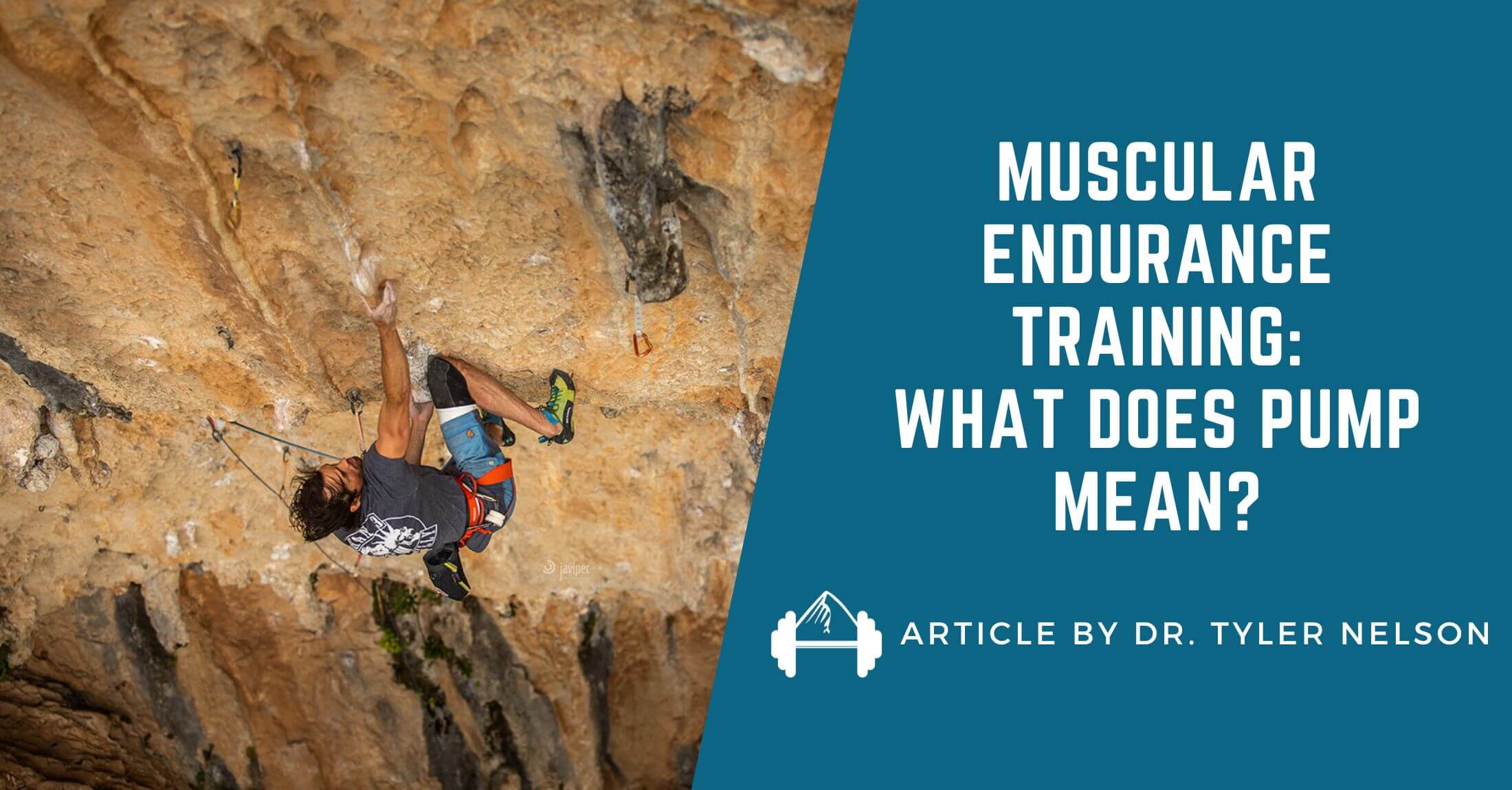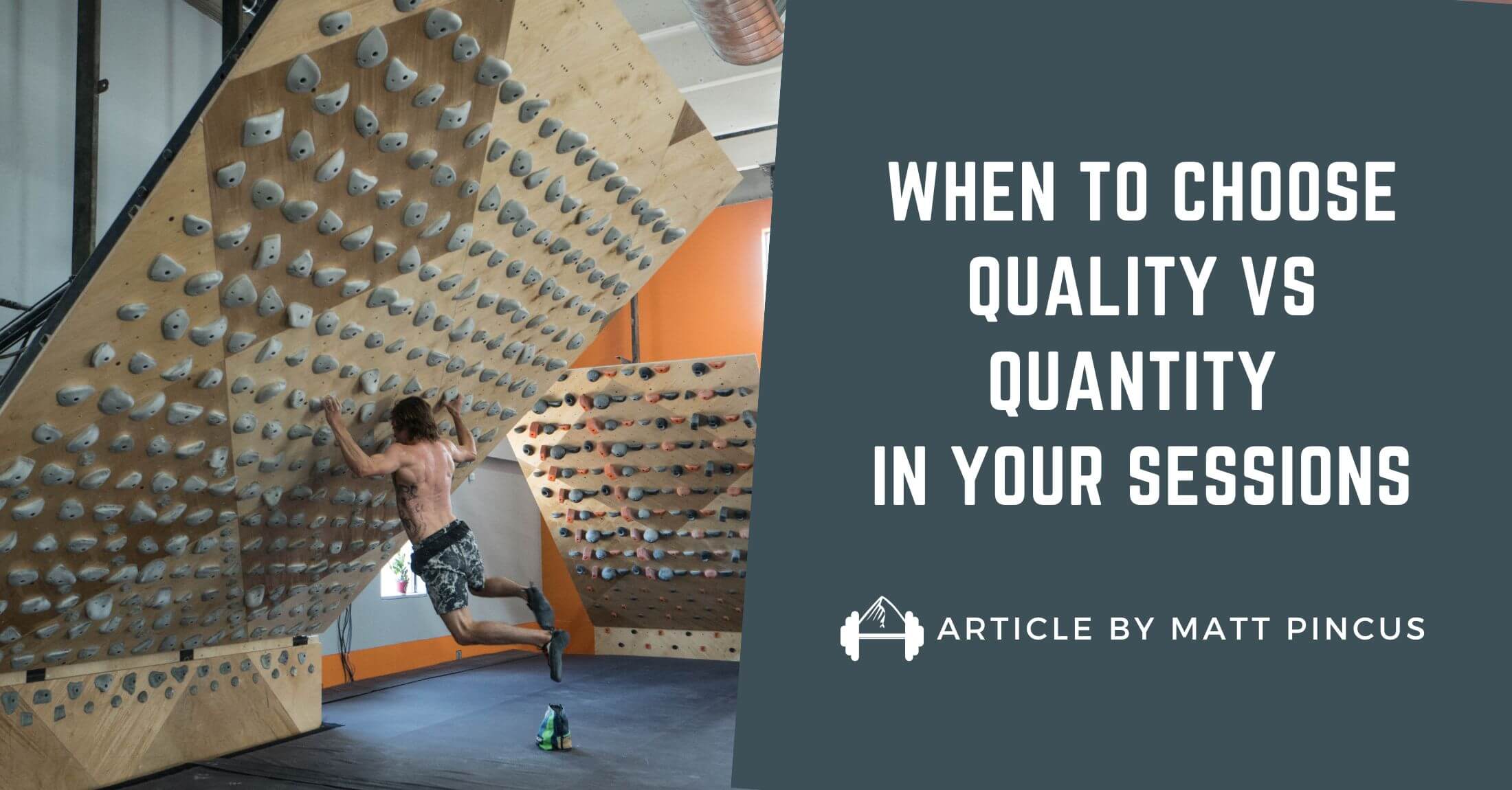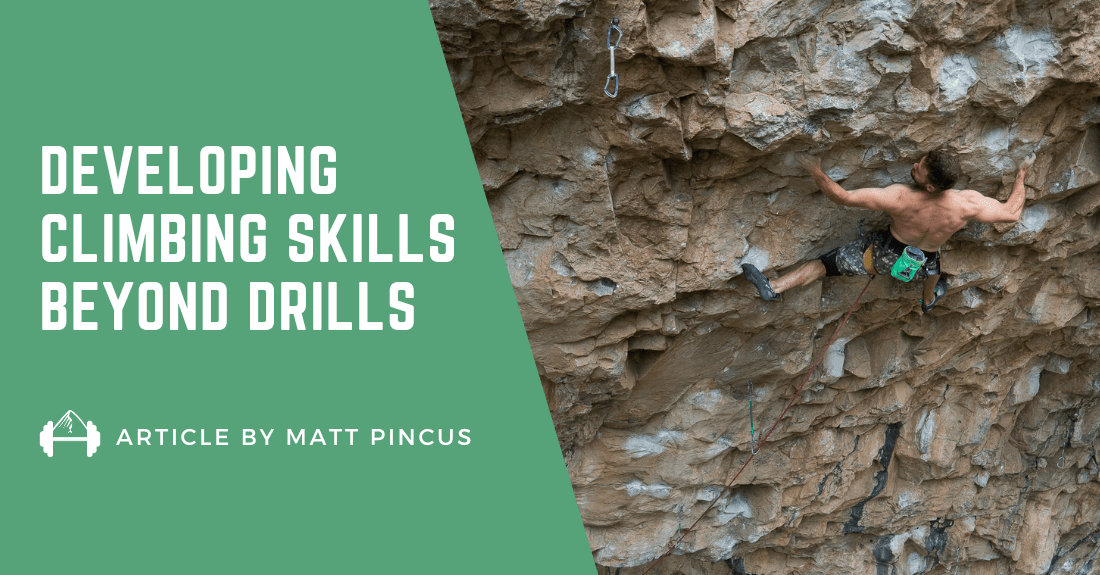Increasing your power level is one of the hardest to get right and most intense forms of climbing training. However, while strength is still the basis of hard rock climbing, power is an extremely important feature that must be trained. No matter how strong you are, eventually the holds will simply get too far apart and you will have to move between them dynamically rather than statically. It is in these instances, where momentum is required, that having sufficient power levels to quickly apply your strength will make the difference between latching the next hold or not.
As we stated above, power is extremely difficult to train correctly. To help you get it right, here’s an article from Climbing Magazine that outlines two different power training strategies and gives you some introductory workouts to help you get started.
“Increasing power requires several different muscular changes in your forearms, but they’ll all be trained at the same time through the following approach. Broadly, the adaptations fit under the category of contact strength, which is how much force you can apply the moment you touch a hold. If you lack good contact strength, you might find it easy to slowly grasp a hold from the ground, but can’t grip the same hold during a dynamic movement, in which you must latch it instantly. Training power forces your body to use more muscle fibers at once, as well as alters the types of fibers from slow twitch to fast twitch.” – Brendan Blanchard
Two Strategies for Increasing Your Power:
While there are numerous different individual exercises that can be used to train power, most fall into two broader strategies. They are:
- Campus board training
- Limit bouldering
Both of these strategies have their individual strengths and weakness and are best when used as complimentary training strategies. In his article, Blanchard outlines the key points for both of these approaches and gives you some basic workouts you can try out if you have never specifically trained power before.
Key Power Training Principles:
The above strategies are definitely the best ways to increase your power. However, regardless of which approach you use there are some important training principles that must be followed when training power:
- Quality over quantity: when training power it is better to have a couple of quality reps/attempts with good form rather than a bunch of sloppy, fatigued attempts. Make sure you are getting enough rest between attempts.
- High intensity: to effectively train power you need to be trying near your limit. This is especially hard with limit bouldering as we all like sending. Prioritize attempting really hard moves/sequences. It is better to be trying near your limit and not send in the gym than send a bunch of easier boulders only to not send outside.
- Risk of injury: as we said above power training is really intense. Make sure you are well rested for each session and stop BEFORE you are fatigued.
If you have never spent any time focusing on training power, this article is an excellent introduction. Click through below to learn more.
Full Article: Increasing Your Power with Climbing Magazine
(photo courtesy of climbing.com)
Other Articles You Might Like:
- Limit Bouldering with The Power Company
- Jerry Moffatt – “Power is a Quality Thing”
- Strength or Power? Improving Your Climbing with Plyometrics
- Campus Training with Will Anglin






Leave A Comment